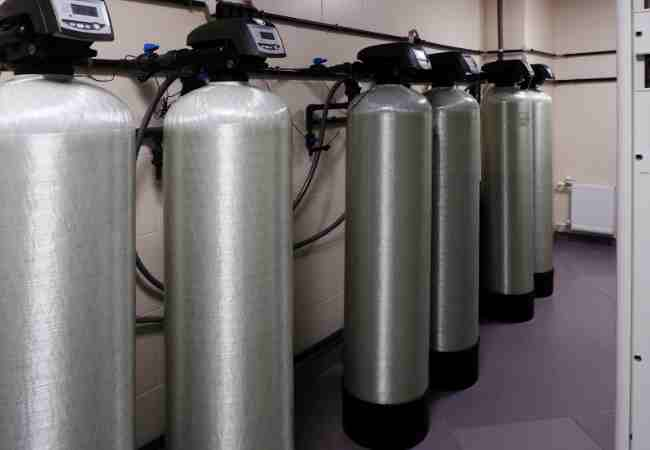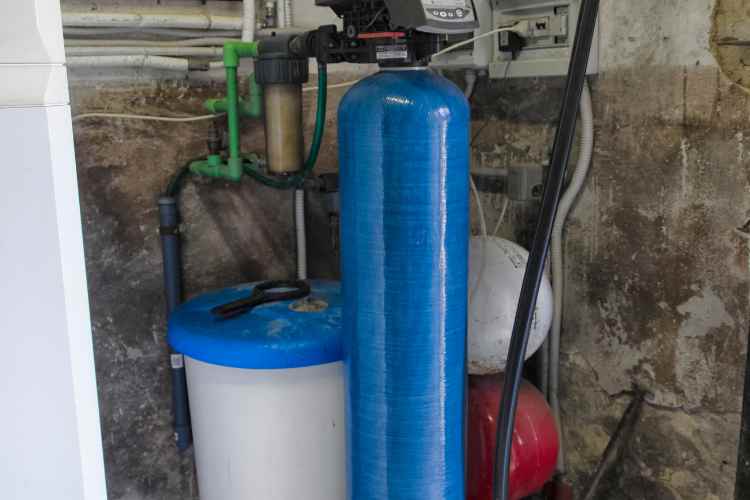Hard water affects a variety of home objects, including clothing, crockery, bathroom tiles, and plumbing fixtures. In addition to your household objects, hard water has several negative effects on your health. Eczema, diabetes, kidney stones, constipation, and altered bone mineral density are all possible consequences of hard water. So this makes installing a water softener important to improve the water’s quality and make it usable in light of these issues.
For households with moderate to high levels of hard water, a water softener offers several advantages and is a great choice. Water softener systems lower water hardness by removing heavy minerals like calcium, iron, and magnesium from the water supply entering the home.
In this article, we will help you through the purchasing process of Water Softeners so that you can choose what type of water softener you should install in your home.
Benefits of a Water Softener
A water softener stops common water issues like mineral deposits and scale buildup that cause leaky faucets and clogged pipes, damage to water-based appliances, chalky stains on glasses that have been washed in the dishwasher, dry skin, and hair after showering, and faded colored clothing after washing.
By preventing heavy minerals from clumping together or passing through the water, a water softener resolves these problems. So water softener has several benefits including:
- Long-term financial savings
- Cleanse your skin and your hair.
- Clean dishes and glasses more thoroughly and brighten clothing
- cutting back on cleaning time
- Improve the taste and transparency of drinking water
RELATED – WHICH ONE IS BETTER?- NEGIN BEHAZIN VS DIGNITY HEALTHT MAKE SENSE
Factors to Consider While Choosing A Water Softener System
Contrary to more regularly used consumer goods, water softener systems are frequently poorly understood, making it challenging for customers to select the finest solutions. So it is advised that before selecting a water softener, you should take some time to list the most important buying considerations. The following are some factors that you need to consider while purchasing a water softener:
- Usage and Hardness
Water softeners come in a variety of sizes to meet the needs of different families. The size needed for a home will vary depending on usage and hardness. It is simple to figure out how much water is utilized simply by multiplying the number of people living in a home by the daily gallon usage. The typical person uses 75 gallons of water every day. Therefore, a household of three will typically need 225 gallons of water per day.
One can evaluate the hardness or softness of water using grains per gallon (gpg), which is equal to 0.002 ounces of calcium carbonate dissolved in 1 gallon of water.
Soft water is defined as 0 to 3 gpg.
>7.5 gpg is regarded as hard water and has to be handled with a water softener.
3.5-7 gpg is regarded as moderate and good.
To determine the size of the water softener required, multiply the water hardness by the amount of water used at home. For a home that uses 225 gallons of water per day and has water that is 10 grains per gallon hard, a water softener with a capacity of 2,250 grains per day is required.
- Capacity
A water softener’s capacity is the number of grains per week it can handle before needing to be changed.
Small water softeners’ weekly grain capacity ranges from 16,000 to 24,000 to 32,000. These are ideal for RVs, small houses, and apartments. Additionally, Medium water softeners have grain capacities of 40,000, 48,000, and 64,000 so these models are ideal for large to medium-sized residences. For large families and homes, we recommend that a residential water softener with a grain capacity of 80,000 or 100,000 would be appropriate.
Moreover, keep this in mind, the system will need more grains to manage more rough water. When managing 3 gpg of water as compared to 10 gpg, a 40,000-grain system would behave very differently.

- Available Area
Water softeners that use salt, and even some that don’t, can take up a lot of room. Before installing the water softener, it is vital to measure the area and compare it to the manufacturer’s installation instructions.
Compared to salt-based devices, most salt-free water softeners are smaller. Depending on the brand, they are fixed immediately on the waterline and only dangle down 1 or 2 feet. Portable salt-based water softeners are an alternate choice for small houses or RVs that desire a salt-based type to completely remove heavy metals. They are comparable in size to salt-free softeners.
The smallest water softeners are magnetic, and you may install them without modifying your plumbing. These smaller softeners may typically be put directly on the pipe without taking up any floor space. So magnetic water softeners are ideal space-saving choices for tiny houses, RVs, or apartments.
- Bypass Valve
A valve controls the water flow via a pipe by opening and closing as necessary. Although it performs similarly to a regular valve, a bypass valve works in tandem with a water softener to divert water flow away from the softer so that you can access the hard water entering your home.
If you recently bought a water softener, this feature might not appear useful. However, by stopping your water softener from using extra salt or energy to soften the water used for watering the grass or cleaning the deck, a bypass valve can help you save time and money.
For such reasons, the bypass valve can be used to send water flow away from the softener and back into the pipes. Simply close the bypass valve after you’re done to resume the flow of water through the softener.
- Regeneration Cycles
When their salt content runs out, salt-based water softeners need to be renewed or regenerated. A timed system or a metered system can be used to control this.
Metered Water Softeners
Metered water softeners function by monitoring the number of gallons of water that are passed through them and automatically replenishing as needed. Because the system will only regenerate when necessary, it is ideal for holiday homes or cottages that experience extended periods of inactivity.
RELATED – WHAT IS RAINWATER HARVESTING? ADVANTAGES AND DISADVANTAGES OF RAINWATER HARVESTING
Timed Water Softeners
The salt in timed water softeners is configured to regenerate automatically at a predetermined time. These softeners give users more control over planned regeneration, but if regeneration intervals are set too closely together, salt usage will increase. If the regeneration intervals are too long, this technique may potentially cause hard water to enter the pipes.
The level of sophistication of the appliance determines whether the system offers water softening during regeneration and whether it is a manual or automatic procedure.
The final words
There are numerous important aspects to take into account as you compare the many varieties of water softeners on the market today for your home. The degree of water hardness in your home, the size and total water use of your household, your budget, and the technical efficiency of particular water softening systems are among these essential factors. You can find the ideal water softener for you and your family by addressing the following questions. We hope you found this article informative and now you can choose a water softener for your home by considering the above-mentioned factors.

